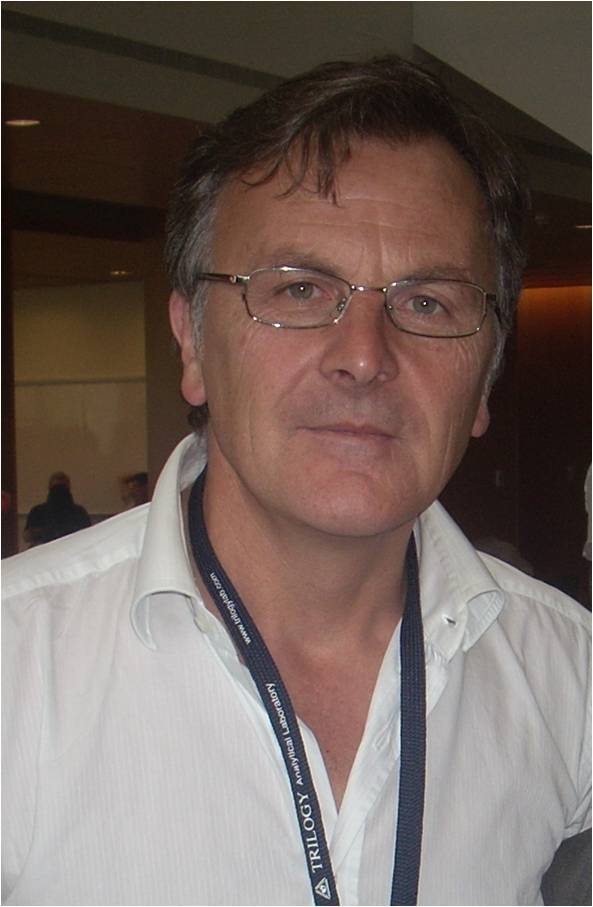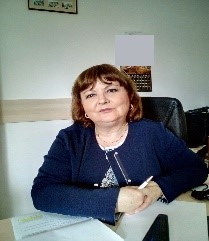FS4EU Project
FS4EU Project
FoodSafety4EU is a collaborative action to support the European Commission (EC) in shaping the Food Safety System of the future. During 3 years life, the project has delivered and shared solutions to support the EC in its endeavour in aligning research, policy and innovation with the societal needs and perspectives and improving food safety across Europe.
Our goal
We’ve designed, developed and released a multi-stakeholder platform and new digital tools to facilitate citizens, scientists, companies, European Commission, EFSA, Food Safety Authorities in co-designing and shaping together the future Food Safety System of Europe. The platform is a dynamic space, being continuously updated according to the last novelties and with input from our Supporting Partners!
Our Approach
Involvement, participation, sharing tools and ideas are the basis of our action! Starting from a pool of 23 partners from 12 EU Member States and Associated countries, we would like to open our network to the most relevant voices from civil society, consumers, companies, young actors and feed the platform with outstanding contributions!
Our Results
We've obtained relevant results that can support the Food Safety System actors to update their knowledge, catch new input from our multi-stakeholder participatory process, including pilot actions run in Czech Republic and Tunisia. Find out the main results in our Zenodo Open Access space, contributing to feed EU Open Science!
-
ResultsKey personsConsortiumMap


How the researchers can contribute to boost cooperation within the Food Safety System?
Strenghtening trust in the EU Food Safety System is the new challenge! This is the goal we are committed to, by co-creating new strategies and boosting transparent communication to shape the Food Safety System of the Future
Veronica M.T. Lattanzio, Project Coordinator
CNR – Italy

FS4EU is a great opportuninty for the entire international scientific community to interact in a structured way with Food Safety Authoriities, Food Business Operators, Consumers and civil society. The project is setting the basis to consolidate a valuable cooperation to face with emerging food safety challenges affecting the food systems in times of crisis and in a dynamic scenario!
Antonio Moretti, Network Coordinator
CNR – Italy

The future is in connecting people, knowledge, data and tools through digitalization. Our project is integrating input from researchers, institutions, food business operators, citizens, consumers to co-design and experiment a new concept of platform in the Food Safety System in Europe.
Nunzia Cito, Platform & Innovation Manager
CNR – Italy

I’m very proud to launch and drive a new network focused on Food Safety in Europe that will surely be crucial for sharing knowledge to jointly tackle the future food borne emergencies thus ensuring human and animal health. I’m confident that this starting group will grow in the future, by engaging the most relevant players to effectively contribute to improve the Food Safety for all
Antonio F. Logrieco, Network Coordinator
CNR – Italy

What do you expect from the food safety system of the future?
We expect that it will be the same for each European country. From communication systems to the processing of scientific data, we believe that it is important to have harmonized systems, to improve simplicity and clarity throughout Europe. It would then be easier to cooperate with all European food safety authorities. Maybe, in the future, we could even strive for global harmonization?
Sarah De Saeger, WP3 Co-leader
UGENT – Belgium

What do you currently do to ease the cooperation with policymakers and researchers?
ZSI partner has set up the methodological approach of FSOlabs to involve a core group of 20 persons representing different stakeholder groups relevant in the food sector to discuss challenges and urgent needs of the specific thematic field of the labs. ZSI introduces the methods, provides a lab manual and trains the facilitators of the series of lab workshops to be best prepared to run the labs.
Dr ilse Marschalek, WP2 Leader
ZSI – Austria

What do you expect from the food safety system of the future?
Looking ahead, we expect the food safety system of the future to be more responsive to the challenges of climate change and the expansion of the global food production and supply, by embracing a holistic approach integrating consumers, environment and food safety. Transferring the ´One Health´ approach to the food safety system could be a smart move to drive this transformational change.
Michael Rychlik, WP4 Leader
TUM – Germany

What do you expect from the food safety system of the future?
Food safety of the future should rely on clear and improved regulations for monitoring the whole food chain and have a broader approach including social, environmental and nutritional aspects. Transparency, trustworthy, optimized, implemented quality management systems, supported by enforced R&D&I actions (rapid testing techniques; education and training) and food policies should be the main keywords for the future.
Nastasia Belc, WP6 Leader
IBA – Romania

How the communication with other actors can be improved?
Raising consumer awareness should be important. Identifying different groups such as: urban and rural population, age, economic status and educational level is an opportunity to obtain information on consumer awareness regarding aspects of food safety. Reducing customer concern and increasing trust is a challenge faced by Authority as well as its mission to acomplish.
Xhilda PEPA, Project partner
AKU – Albania

How can you increase the importance of your role in the food safety system?
As food safety communicators we need address the complexity of topics related to food safety combined with individual needs. How? By making sure we translate the facts into accurate, accessible and actionable info. By mapping our audience and channels. And, by monitoring the public discourse and engaging in discussion with other stakeholders in the field.
Nina McGrath, Task leader for public engagement and stakeholder cooperation
EUFIC – Belgium

What do you currently do to ease the cooperation with policymakers and researchers?
FoodDrinkEurope participates in many EU-funded projects translating research outcomes into policy advice. FoodDrinkEurope also hosts the secretariat of the European Technology Platform ‘Food for Life’, which brings together experts from industry and academia to identify strategic R&I priorities and bring these to the attention of policymakers.
Rebeca Fernandez, Project Partner
FDE – Belgium

What do you currently do to ease the cooperation with policymakers and researchers?
The cooperation with policymakers and researchers is one of FIPA’s main goals. To do so, we deliver scientific and technological-based information, not only to support the agri-food companies on their daily work, but also to improve policymakers’ knowledge about the sector. This collaborative work – with upstream and downstream partners – allows us to develop a holistic approach and response to food policy challenges, namely, when it concerns food safety.
Pedro Queiroz
FIPA – Portugal
National Research Council of Italy – Institute of Sciences of Food Production (CNR – ISPA)
CNR ISPA aims at developing and implementing research and innovation projects to improve the safety and quality of food products, by using sustainable technologies and advanced methodologies, in cooperation with industry, SMEs, providing input for regulation. CNR ISPA applies integrated knowledge from different domains (chemistry, toxicology, microbiology, agronomy), acting at the global level mainly in food contaminants.
Ghent University (UGENT)
The UGENT Centre of Excellence in Mycotoxicology and Public Health focuses on mycotoxins and human health, detection methods, mycotoxin occurrence, metabolomics and untargeted analysis. It is member of Food2Know – a Flemish Centre of Excellence for feed, food and health – aiming to guarantee direct access to companies, sector federations, consumer organizations or government agencies and research to top expertise and advanced equipment.
Wageningen University and Research (WUR)
A leading international knowledge institute on Society and well-being; Food, feed and bio-based production; and Natural resources and living environment. Using a multidisciplinary approach and open connections between exact sciences and social sciences disciplines, WUR research encompasses the entire chain of knowledge, from curiosity-driven fundamental research to science-based and up-scalable practical knowledge to create impactful solutions.
University of Chemistry and Technology Prague (VSHCT)
The largest academic institution of its kind in Central Europe with a history of almost 200 years. Department of Food Analysis and Nutrition of the Faculty of Food and Biochemical Technology has available cutting edge instrumentation and has implemented QA/QC system within accreditation granted according to the International standard ISO/IEC 17025:2018. VSCHT also implements research projects activities focused on several topics within the food sector.
Technical Research Centre of Finland Ltd (VTT )
Working on Knowledge intensive products and services, Smart industry and energy systems, and Solutions for natural resources and environment, VTT takes advantage from its wide multi-technological knowledge base to strengthen Finnish and European industrial competitiveness. VTT Process Microbiology and Food safety Team has experience in food safety, process microbiology, risk assessment and management of harmful microbes.
Technical University Munich (TUM)
TUM School of Life Sciences plays an important role in technology and analyses of foods and investigating the effects of foods and nutrition on human health. The Chair of Analytical Food Chemistry (CALC) is dedicated to develop and validate new methods for bioactive trace compounds in foods. CALC is also involved in standardizing the respective methods on a national level in strong collaboration with the German Federal Institute of Risk Assessment.
Italian National Agency for New Technologies, Energy and Sustainable Economic Development – ENEA
ENEA is aimed at research, technological innovation and the provision of advanced services to enterprises, public administration and citizens in the energy, environment and sustainable development sectors. The Biotechnologies and Agroindustry Division (BIOAG) – Department for Sustainability (SSPT) focuses on innovation in the agro-industrial system for the development and competitiveness of food production in terms of quality, safety and sustainability.
National Research and Development Institute for Food Bioresources (IBA Bucharest)
A self-financed public research organization conducting food and nutritional research, product technology development and food S&T services for food industry. IBA is a national reference laboratory on several food safety and quality issues and also plays an important role in developing/coordinating/participating to the R&D Strategies in the food area (both for Ministry of Agriculture and Rural Development and Ministry of Research). IBA has been participating in over 100 EU and national research projects.
Belgian Federal Agency for the Safety of the Food Chain (AFSCA)
AFSCA is the Belgian food safety agency responsible for the assessment and management of risks that may be harmful to the health of consumers as well as the health of animals and plants. AFSCA carries out food safety inspections throughout the entire food chain. AFSCA is also in charge of the risk communication to stakeholders and consumers regarding all issues related to the safety of the food chain.
Economic and Food Safety Authority (ASAE)
ASAE is the national authority responsible for the discipline of the economic activities in the food and non-food sectors, by monitoring, prevention and enforcement of regulatory legislation. In the context of risk assessment and risk communication, ASAE is the national liaison body with its counterpart organizations at European and international level, through the appointment as the focal point of the EFSA on scientific and technical issues.
Ruokavirasto (Finnish Food Authority), Risk Assessment Unit (FFA)
Playing a leading role in the development and implementation of the national food control programme along the whole food chain, FFA is also responsible for scientific risk assessment and conducts research on food safety, with internationally recognized expertise in its field. Working with a multidisciplinary approach, FFA also acts as the link to consumers and organizes risk communication in the field of food safety.
Autoriteti Kombëtar I Ushqimit (AKU)
NFA carries out inspection, technical activities in compliance with the requirements of the law "OnFood" as well as other specific laws on food safety, food and feed, protection at all stages of production,processing,storage, distribution and marketing of products, as well as leading the risk assessment process infood/feed, plant protection and Agricultural Inputs. Informs the public of food/feed safety and Plant Protectionand Agricultural Inputs.
INSSPQA
The National Food Safety Authority (INSSQPA) was created after the publication on February 26, 2019 of new law in order to strengthen the regulatory and institutional framework related to food safety. This law aims to ensure food and feed safety to achieve a high level of protection of human and animal health and protect the economic interests of the consumer as well as enhance export opportunities. INSSQPA is mainly responsible of risk management related to food and feed and of the communication on these risks.
Premotec GmbH (PMT)
Premotec is focused on designing and implementing software solutions for food science data and school administration. Their vast knowledge and experience come from involvement in national and European projects and international cooperation with food science universities, governmental agencies and industry experts. Premotec develops FoodCASE software for food data management such as food composition, food consumption and total diet studies (TDS).
Centre for Social Innovation (ZSI)
ZSI is a private non-profit trans-disciplinary social science research institute. The focus of the department Technology and Knowledge lies on research that is at the interface between technology and society: how to build technology in order to be of use for diverse groups or the implications of technology. The department has longstanding experience in multi stakeholder dialogues and stakeholder engagement.
Agency for the Promotion of European Research (APRE)
APRE is a no-profit research organization with the mission to support the scientific and industrial communities towards the path to Europe and beyond, by providing information, training and assistance on the Framework Programmes for Research and Innovation of the European Commission. APRE is an association of 142 members; moreover, it participates in the Enterprise Europe Network, in particular as member of the Agrifood Sector Group.
European Food Information Council (EUFIC)
EUFIC, is non-profit organisation that offers accessible, appealing and actionable science-based information on food and health – to inspire and empower both the general public and health professionals. EUFIC has extensive expertise in translating and tailoring scientific results into digestible materials. Versatile audio-visual materials are produced to satisfy the needs of different audiences, from simple infographics to reviews of scientific literature.
ISEKI Food-Association (IFA)
ISEKI-Food is an independent non-profit organisation in the food sector, mainly focused on education and training. ISEKI-Food is developing and carrying out activities connected to food such as: working towards the quality assurance of food studies; tuning and accrediting curricula and certifying training activities on an international level; developing teaching materials and implementing innovative teaching methods and formats; promoting synergies among research, education, industry and authorities; and building up a virtual community of experts in the food sector with communication to the general public.
ILSI EU
ILSI Europe is a non-profit and membership-based organisation that strives to be at the forefront of science in nutrition, food safety and sustainability by tackling innovative and emerging topics in a timely manner. To do so, ILSI Europe brings together experts from academia, industry and public authorities that collaborate and share their unique expertise to reach consensus for the betterment of public health
FoodDrinkEurope
FoodDrinkEurope is the organisation representing the interests of the European food and drink manufacturing industry. FoodDrinkEurope provides expertise on a range of issues from food safety and science, competitiveness and trade, nutrition and health, consumer information, and sustainability. Regarding food safety, FoodDrinkEurope is the main interlocutor of the food industry with EU institutions and agencies such as EFSA. Its food safety expert groups work on topics such as contaminants, food processing contaminants, food contact materials, food ingredients (additives, enzymes, flavourings, etc.), novel foods, and allergens.
European Community of Consumer Cooperatives (EuroCoop)
Euro Coop is the EU-level association uniting 19 national structures of consumer co-operatives across Europe. Euro Coop’s advocacy aims are to represent consumer co-operatives’ interests within the EU policy process and provide their innovation in the form of policy recommendations primarily within four domains: food policy, sustainability policy, retail policy and consumer policy. Dossiers Euro Coop works on include all matters related to food – safety, labelling, authenticity, quality standards, and supply chain,as well as calling for a Common Food Policy.
Federação das Indústrias Portuguesas Agro-Alimentares (FIPA)
FIPA is the Portuguese federation of agri-food industry that brings together a wide range of associations and companies. Based on a set of four pillars (Consumer, Competitiveness, Innovation and Sustainability) FIPA’s strategy aims to reinforce the agri-food efforts on research and innovation and, thus, reinforce the industry role in the consumers daily lives by providing safe, nutritious, accessible and sustainable products.
FFDI
Founded in 1995, the Federation of the Food and Drink Industries of the Czech Republic (FFDI) is a Czech Non-Governmental Food Industry Chamber aimed to support international, national and local public bodies for the analysis, design, implementation and evaluation of sustainable policies in the fields of energy, environment, transport and mobility, urban planning, and knowledge society. It provides complete service for the food industries and professional associations.

